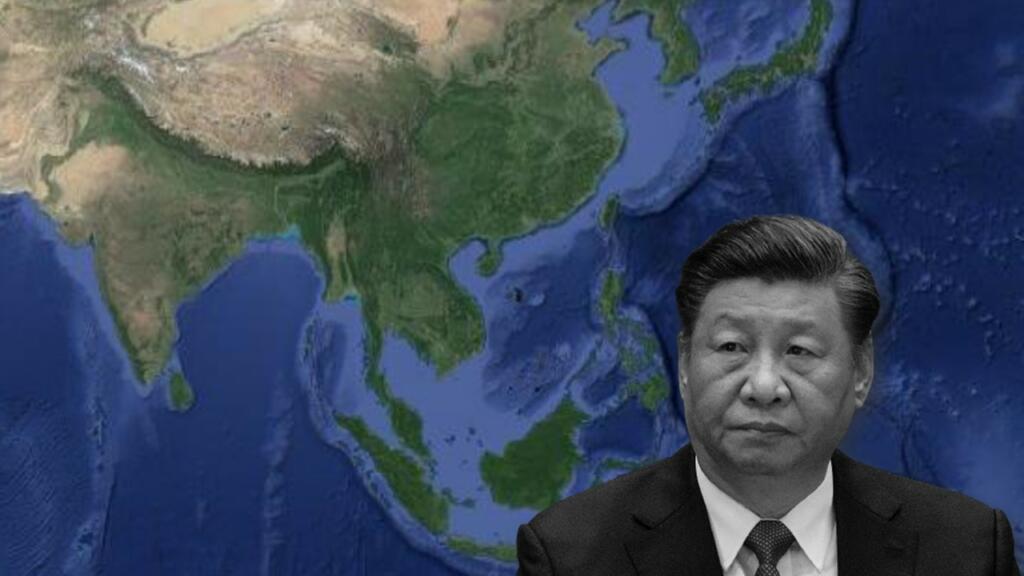Once claiming the supremacy of not only Asia but of the world, China is crumbling to find a friend in the region. After the success of the economy and expansion of military power, China was supposed to replace Russia in the new Cold War scenario. But, its bully behaviour and the tendency to debt-trap its partners have isolated China to such a level that the Paper Dragon is not able to find a single natural friend in its neighbourhood.
Wang Yi’s warning to ASEAN
Rattled by the successive alignment policies of India with the Indo-Pacific countries, Chinese Foreign Minister Wang Yi has now resorted to threatening smaller nations in the region. Addressing the Association Of Southeast Asian Nations (ASEAN) secretariat in Indonesia, Wang Yi said, “We should insulate this region from geopolitical calculations…from being used as chess pieces from major power rivalry and from coercion…The future of our region should be in our own hands”.
Giving sermons to ASEAN countries on legitimate rights of international relations, Yi added, “The core elements are to support ASEAN centrality, uphold the existing regional cooperation framework, respect each other’s legitimate rights and interests in the Asia-Pacific instead of aiming to antagonize or contain the other side”.
The fear and solution of ASEAN
China’s warning to ASEAN countries to avoid being used as ‘chess pieces’ by major powers is a reflection of nations’ continuous aspiration to find the solution to the Paper Dragon’s transgression behaviours. Rejecting the judgment of the United Convention on Laws of Sea, China has effectively established an administrative district for the Spratly and Paracel Archipelagos and has named 80 islands in the South China Sea. Confronting small Pacific neighbours like Vietnam and the Philippines, China has grabbed their territorial water claiming them as the Communist Nation’s exclusive economic zone.
Continuing with its modern imperialism behaviour, China has transgressed toward 17 of its neighbours claiming their land and sea territory as its own. With the Philippines’ Scarborough Reef and Spratly Island, Vietnam for Paracel Islands, Japan for Senkaku and Ryukyu Islands, South Korea over Socotra Rock in the East China Sea, and even North Korea over the demarcation of the border in the Sea of Japan.
Suffering from China’s bullying behaviour, ASEAN countries are continuously aspiring to form a security alliance with like-minded countries like India, the US, Australia, and Japan. To protect their territorial sovereignty on sea and land, they are on spree to strengthen their position with the coalition of regional groupings like the Quad and The Indo-Pacific Economic Framework (IPEF).
Reaf More: Why China fears BrahMos guarding the Philippine coastline
Wang Yi’s statement clearly reflects China’s fear
Wang Yi’s statement clearly reflects China’s fear due to the growing economic and defence cooperation of Indo-Pacific countries. Earlier, in its effort to encircle India with its ‘String of Pearls’ policy, China made a lot of ‘debt diplomacy’ with India’s neighbours like Bangladesh, Maldives, Sri Lanka, Myanmar, Nepal, and its evergreen friend Pakistan. But unsustainable loans and influencing policies of domestic countries do not last long and the failure of Sri Lanka, Pakistan, and Maldives’s economies exposed China’s so-called developmental cooperation.
Further, capitalizing on the global distrust against China, India launched a counter-balance strategy called ‘Necklace of diamonds’ to encircle the dragon in its own backyard. India made sustainable alliances with its neighbour and downsized China’s influence in its neighbourhood and launched successive policies to ally with ASEAN countries.
Read More: INDIA is snatching ASEAN from the jaws of China
The recently announced Indo-Pacific Economic Framework is one of the foremost organizations which leads the way. Leaving China, almost every country in the Indo-Pacific like the United States, Australia, Brunei Darussalam, India, Indonesia, Japan, Republic of Korea, Malaysia, New Zealand, Philippines, Singapore, Thailand, and Vietnam have been included and formed this alliance to make strong economic cooperation against China.
Further, India at an individual level is also making silent but strong cooperation with these countries like selling of world’s best cruise missile Brahmos to Vietnam and the Philippines, gaining access to key strategic ports like Changi Naval Base in Singapore and Sabang port of Indonesia have almost choked China in its own neighbourhood. Further, the made-in-India fighter jet, LCA Tejas (Light Combat Aircraft), has emerged as a ‘frontrunner’ for the Malaysian requirement for light combat aircraft.
The successive cooperation and regrouping have threatened China’s ambition to challenge the US in the global power struggle. However, its bullying and transgression behaviour challenging the sovereignty of smaller ASEAN countries has contained China’s aggression in its own backyard. Wang Yi’s statement to caution ASEAN countries to not become ‘chess pieces’ of major powers reflects China’s fear of being abandoned by its neighbours. Further, to regain its leadership crown in Asia, China has resorted to international and sovereign rights verbatim.
Support TFI:
Support us to strengthen the ‘Right’ ideology of cultural nationalism by purchasing the best quality garments from TFI-STORE.COM.
